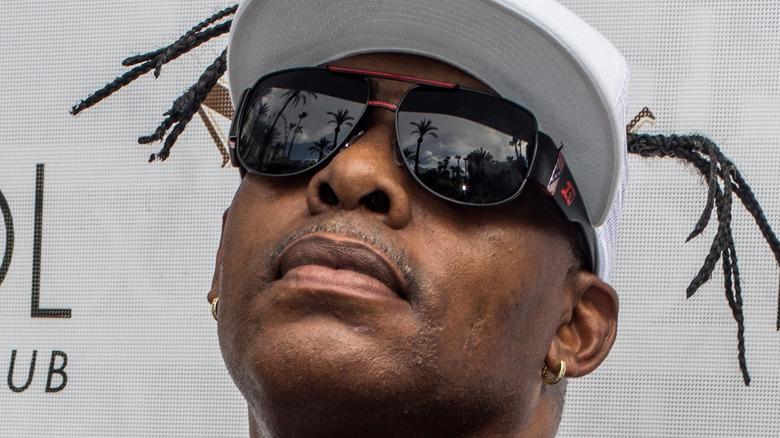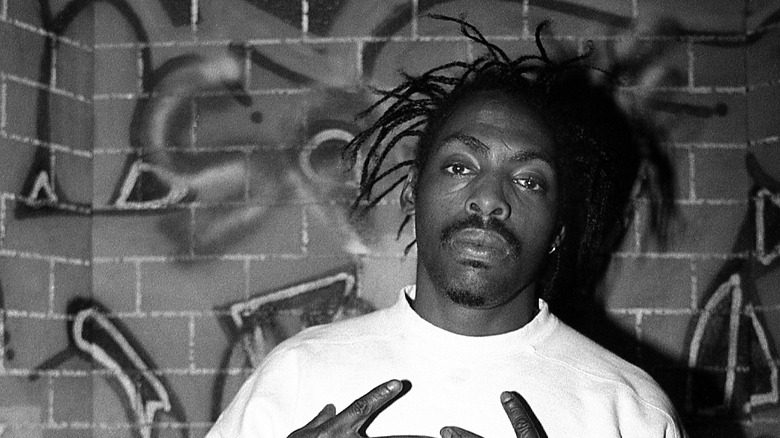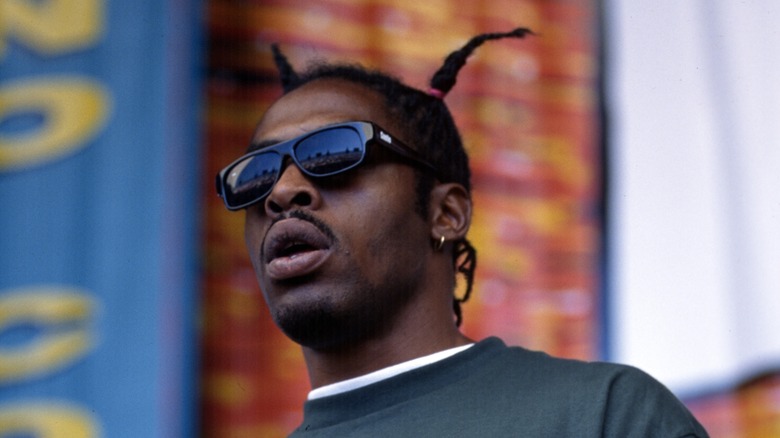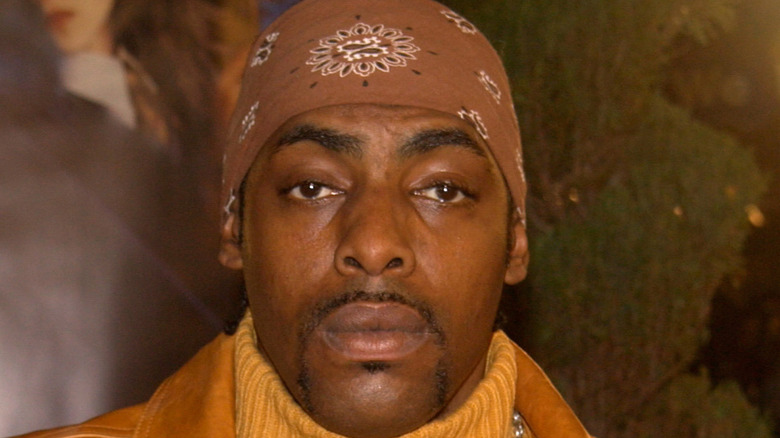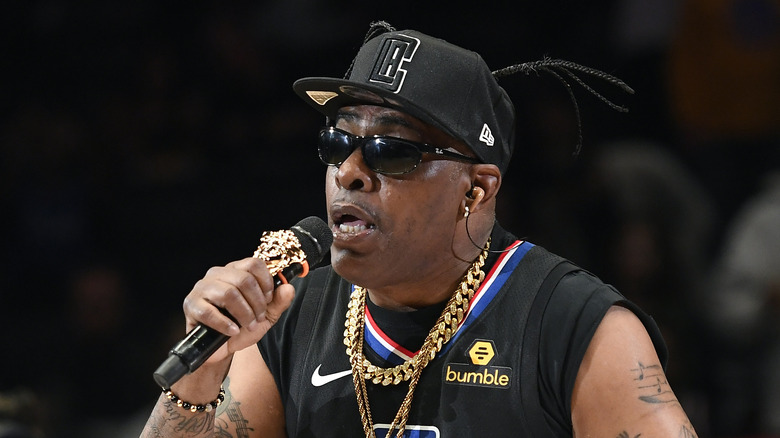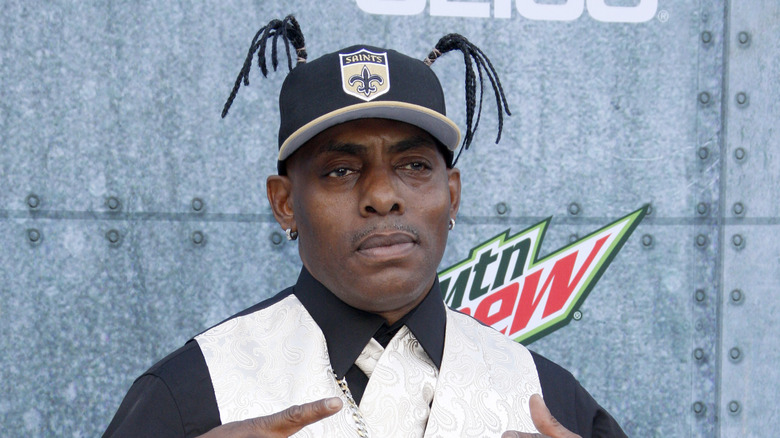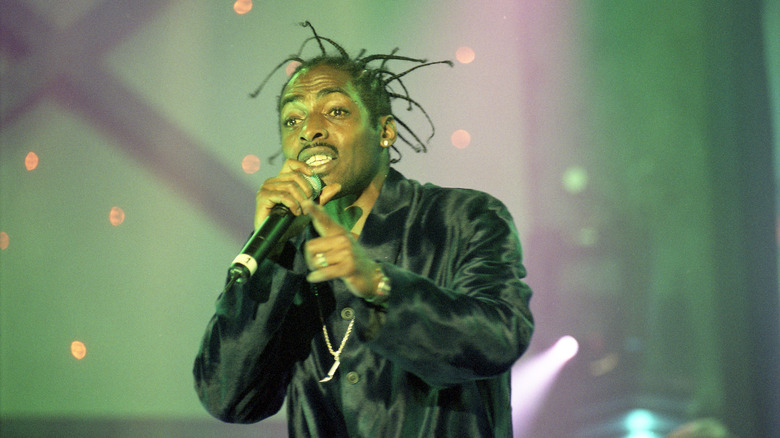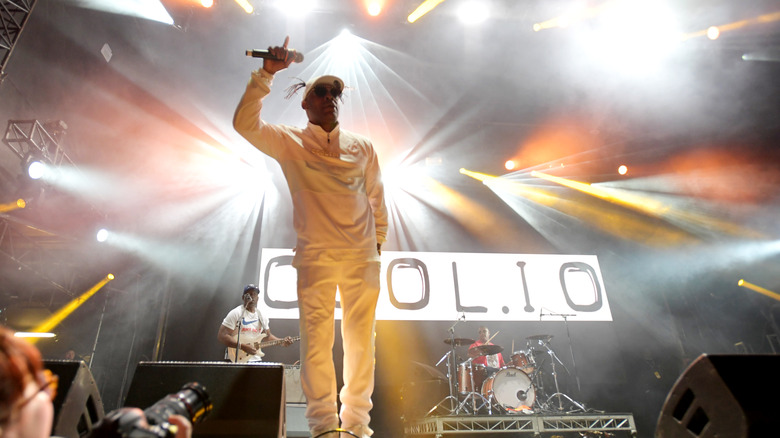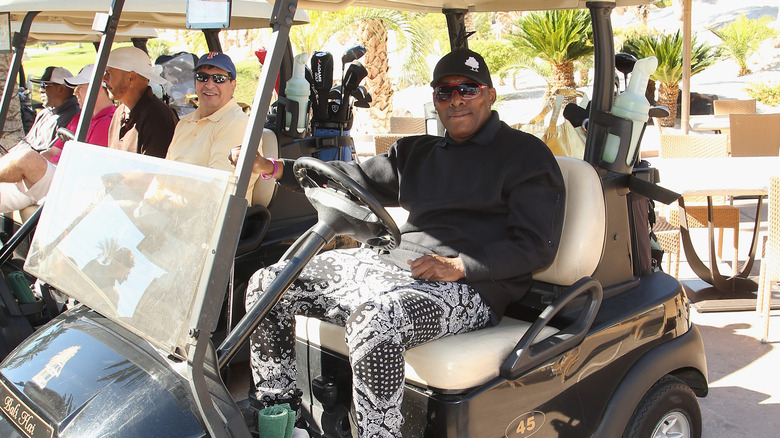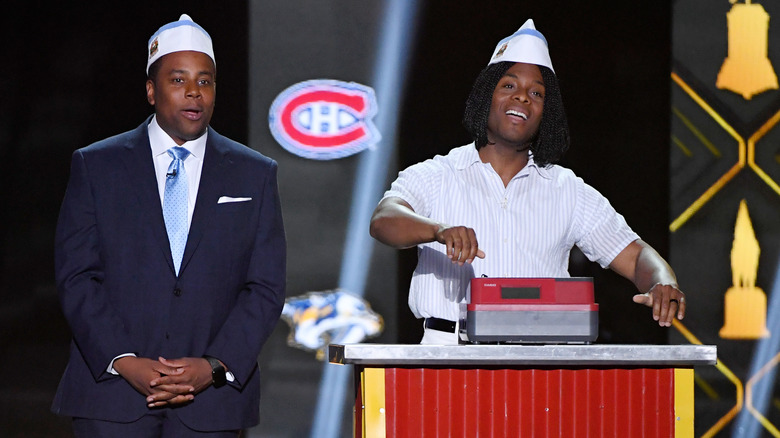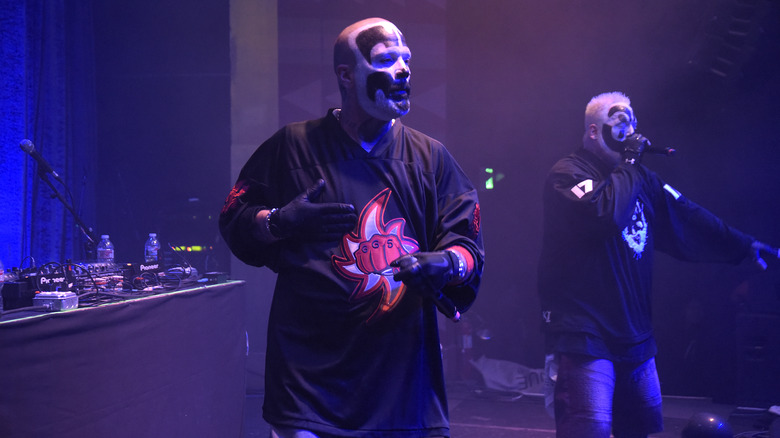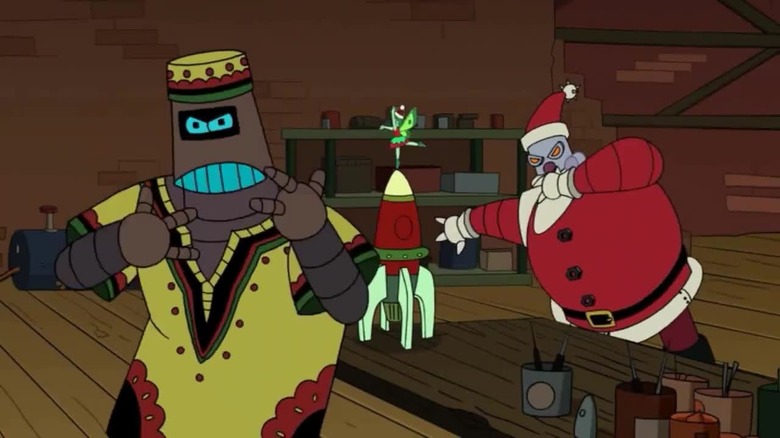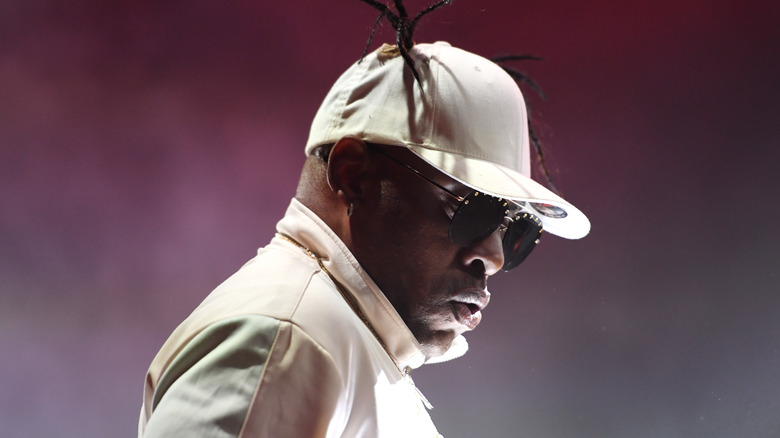Essential Facts About Coolio
Although rap/hip-hop has been a thing for several decades now — and in recent years, the line between the once-niche genre and pop music has generally thinned quite a bit — there was a time when a rap single making the Top 40 was a rare feat. Rarer still was a rap single that reached No. 1. But in 1995, a Compton rapper by the name of Artis Leon Ivey Jr. pulled it off: his song, "Gangsta's Paradise," not only reached No. 1 but stayed there for several weeks, according to Official Charts. The gritty dirge about life in a city controlled by criminal gangs made its performer a star. Of course, as is the case with the overwhelming majority of rappers, the song's performer didn't use his real name but rather his stage name: Coolio.
Though Coolio's star dimmed somewhat after the 1990s, he never really went away, reinventing himself as a performer in a new genre. Sadly, he passed away suddenly on September 28, 2022, as per CNN. He was 59.
His stage name started out as a mild insult
Though there are exceptions (Kanye West, for example, or Obie Trice), by and large, performers in rap/hip-hop have used stage names for reasons that go back to the genre's beginnings in the late 1970s, as Katie Goodrich reports. Artis Ivey has, of course, been known as "Coolio" for decades, and as it turns out, the name began as something of an insult, but Ivey liked it and decided to use it.
The origins of "Coolio" depend on whom you ask, but various reports all share the same general structure. According to the Daily Mirror, Ivey got the name in high school when he was performing a Julio Iglesias song in a competition, and his friends nicknamed him "Coolio Iglesias." Another version of the story comes from Alt.Pop.Repeat and claims that Ivey was listening to a song by José Feliciano, and his friends — mocking him — gave him the nickname "Coolio Iglesias." Regardless of how he got there, Ivey didn't take the insults to heart and instead ran with them, using the nickname as part of his rap persona.
He might have overstated his gangsta cred just a bit
Coolio's most popular song, "Gangsta's Paradise," has the word "gangsta" (or "gangster," if you didn't get it) right there in the title. And Coolio certainly grew up on the rough streets of Compton, where poverty, hopelessness, despair, and gang violence were parts of daily life. But was Coolio ever a gangster? Well, yes and no. According to AllMusic, when he was a preteen, Artis Ivey started getting into trouble and wound up with the Baby Crips, a sort of minor-league version of the real thing. However, he apparently didn't fit in with the gangsters and was never formally inducted into the violent L.A. street gang.
However, despite not being in a gang, Coolio did manage to run afoul of the law. As The New York Post reports, as a teen, he was busted for bringing a weapon to school and cashing a stolen money order. As an adult, Ivey also wound up on the wrong side of the law more than once. As The New York Times reported, in 1998, Coolio was busted for being an accessory to robbery, and in 2016, he and his crew were busted for having a loaded firearm inside of a bag at Los Angeles International Airport (via TMZ).
He didn't care at all for being spoofed by Weird Al
For most musicians, being spoofed by Weird Al Yankovic is a badge of honor. For example, Houston rapper Chamillionaire, whose "Ridin' Dirty" became "White & Nerdy," told Wired that the spoof meant he'd made it and called the spoof an "honor." However, when Weird Al turned "Gangsta's Paradise" into "Amish Paradise," Coolio wasn't feeling it.
Yankovic always made it a point to get the artist's permission before writing a parody, not because he's legally required to do so, but because he likes to maintain good relationships with his colleagues. In the case of "Gangsta's Paradise," Mental Floss reports that Yankovic got permission for the spoof from Coolio's record label, but apparently, Coolio himself wasn't behind that authorization. In fact, he was quite salty about his serious look at real problems being turned into a comedy bit and publicly called out Weird Al for spoofing him without permission. However, after a few decades, Coolio, um, cooled off and realized he was being a giant baby about it, according to Showbiz CheatSheet. "I've since apologized to [Weird Al]. Again, that was so stupid. ... That was a stupid thing for me to do. That was one of the dumbest things I did in my career," he said.
He tried, and largely failed, to keep his own kids on a short leash
By 2008, as The New York Post reported at the time, Coolio's star had dimmed quite a bit. Further, though far from broke, he wasn't the multi-millionaire he was in his heyday, having lost quite a bit of money to a divorce and a drug addiction, and decided to turn to reality TV to bring in some cash. The show was to focus on Coolio's relationship with his children, who at the time ranged in age from preteen to early 20s.
Despite having grown up poor and surrounded by gangs, Coolio tried to manage his own children a bit better. It usually didn't work, said Brandi, who was 19 at the time. "He's tried to ground me and Artesia by bein' like 'You can't go out for the weekend.' But he'd give us money and let us go anyway. He threatens us, but only with money," she said.
Of course, that's not to say that his children got off scot-free for their shenanigans. For example, when his daughters failed to clean the kitchen after dinner, Coolio punished them by dropping pots of spaghetti on their beds.
If you or anyone you know is struggling with addiction issues, help is available. Visit the Substance Abuse and Mental Health Services Administration website or contact SAMHSA's National Helpline at 1-800-662-HELP (4357).
He became a chef
Growing up in poverty in a rough neighborhood in L.A., Artis Ivey didn't have access to quality food — a situation that would now be referred to as a "food desert." Nevertheless, Ivey did the best he could with what he was given, and by the age of 10, he was creating meals in his family's kitchen (via Cook Backstage).
By 2018, after his rap career was comfortably in the rear-view mirror, Coolio reinvented himself as a chef. Specifically, he made his second career out of teaching his readers and viewers how to do what he did as a young boy: make delicious and healthy meals with inexpensive ingredients. His book, "Cookin' with Coolio: 5 Star Meals at a 1 Star Price," contains chapters with such titles as "How to Become a Kitchen Pimp" and "Pasta Like a Rasta." Further, his recipes include fusions that you're not likely to find at a Michelin-starred restaurant, such as Blasian (Black Asian) or Ghettalian (ghetto Italian).
In addition to his book, Coolio took his culinary career to the small screen, having appeared on the Food Network, as well as a web series, "Cookin' With Coolio."
Coolio was a bookworm as a kid
Even though young Artis Ivey would later have some involvement with gangs and criminal activities as a teen, that was not the case at first after moving to Compton at 8 years old with his mother and sister. At his new home, the artist one day to be known as Coolio spent most of his time engrossed in the various worlds of children's fiction. In an interview with Rolling Stone, he said, "I lived in that library, man. I read every kid's book they had in there. I even read Judy Blume."
Coolio was very close with his mother, so when not at the library, she taught him how to play just about every board and card game that existed in those years. Playing the various games was not just a fun experience for the two, but they also devised a way to turn their impressive skills into a lucrative operation. When talking with The Independent, Coolio recalled, "When I was 10 years old, she'd invite people over to play dominoes and she was hustling `em. She let `em win, and then she'd say: 'You sorry motherf******, you come here and me and my 10-year-old son'll whip your a**.' She bet them $50. And I come in and we kicked they a**, man."
Becoming a firefighter helped him overcome substance abuse
When Coolio was in his 20s, he was at the lowest point of his life. If he had not taken steps to change his situation, it could have been all over. The young man's dependency on crack cocaine was not just detrimental to his health, but also aroused fury within his loved ones, particularly his brother, Spoon. In an interview with RadarOnline, Coolio explained the extremely tense situation and said, "I was down to 100 lbs. I was a skeleton, and Spoon pointed a .38 caliber at my head and told me if I didn't promise to clean up, he would kill me."
To overcome his addiction, the future rapper then moved to San Jose and lived with his father, where he became a volunteer firefighter in a program for drug addicts. Fortunately, the regimented structure of the position was exactly what he needed at the time. Even though Coolio stated that the 18 months he spent in a brigade of the California Department of Forestry was the most difficult job he ever had, it was a life-altering experience that saved him. Not only did he kick his harmful habit, but also his faith in Christianity became stronger and helped him considerably during that difficult process.
If you or anyone you know needs help with addiction issues, help is available. Visit the Substance Abuse and Mental Health Services Administration website or contact SAMHSA's National Helpline at 1-800-662-HELP (4357).
A celebrity tournament led to a love of golf
Coolio's fame increased dramatically after the release of "Gangsta's Paradise," and his new celebrity status brought experiences that he would never have considered in his earlier life, most notably playing golf. In the interview with the Independent, Coolio admitted that he initially judged the leisure activity harshly without knowing much about it. He said, "I used to think it was a white man's sport. I used to say, f*** that s***, until I played it one time in a celebrity tournament, and I've been going once a week ever since. I just love it, it's so relaxing, man."
The rapper discovered he had a knack for the sport even before he participated in the tournament. In order to get some familiarity with it beforehand, Coolio told Arabian Golf TV that he went to the driving range twice, and his performance was surprisingly much better than what he expected. From then on, his passion for golf only grew, but he also remained humble in his abilities and acknowledged he would probably never reach a pro level.
Coolio did the theme song to Kenan & Kel
The mainstream popularity of Coolio's music in the '90s paved the way for him to branch out even more from the standard gangsta rap. Two young comedians, Kenan Thompson and Kel Mitchell, were particularly grateful for the musician's contribution to their new show, "Kenan & Kel." Coolio not only wrote the theme song for the kids' comedy but also featured in the video as well.
Years later, Mitchell was still so pleased with the results that he even used the song before his acts as a stand-up comedian. Thompson voiced his gratitude to the rapper as well to Entertainment Weekly and explained what sparked the collaboration when he said, "Shout out to Coolio. It was the best. He had been on 'All That' before at that point, so we felt like we knew him. That's how you are when you're young, 'Oh yeah, Coolio's my best friend.'"
An ICP tattoo led to confusion
After touring with the rap group, Insane Clown Posse, Coolio gained a lot of respect not just for the duo, but also for their infamous fans, known as Juggalos. To honor them, Coolio got a tattoo, but he faced some criticism when he showed it off to the world — because he spelled the fan name with only one "g," an error that was highlighted by TMZ.
Afterward, Coolio was given the opportunity to set the record straight in an interview with Vice. When asked if it truly was a mistake, he replied, "No, I didn't misspell it, bro! That's the thing. Remember in hip-hop, we always misspell s*** anyway, right? Instead of putting s's on the end of something, we put z's." He then added, "I took the 'g' out of 'Juggalo' because there's only one motherf****** G, and that's me. I didn't need two g's to describe my Juggalo."
The rapper then called out TMZ for the story and voiced his anger over their attempt to make a fool out of him. He also dished out his own criticism, stating that it was not right for the outlet to place judgment on people or cultures they do not understand.
He made one final Futurama cameo
Out of all of Coolio's forays into side projects outside of rap music, one of his most hilarious was the few cameo appearances he made on the animated series, "Futurama," as the character Kwanzaa-bot. Beginning in 2001, he appeared in the episode "A Tale of Two Santas" from the 4th season, and then in the 7th Season for "The Futurama Holiday Spectacular," says Variety.
When Kwanzaa-bot appeared in the "Futurama" film "Bender's Big Score," it could have been for the last time, as the show was canceled in 2013. However, the rapper was able to reprise his role one last time in the revival of the show on Hulu, with 20 new episodes available for streaming in 2023.
Shortly after he finished recording for the role, Coolio tragically passed away and executive producer David Cohen will greatly miss working with him. Cohen told TMZ, "Coolio was one of my favorite guests. He was always totally upbeat and genuinely enjoyed coming in to record as his character Kwanzaa-bot."
He became a spokesman for the Asthma and Allergies Foundation
During his impressive career, Coolio gained more fame and fortune than most, but he did not succeed without facing his own personal struggles. One of his greatest obstacles was the severe asthma he was plagued with his entire life. When talking with USA Today, the rapper explained the intensity of the condition and said, "I had a few episodes with asthma where I was in serious trouble and could have died." He also added, "I still played sports, but I would just have attacks and have to be hospitalized every now and then."
Coolio did whatever he could to help others who suffered from the terrible condition, especially by increasing awareness of treatments for children. One major way that he was able to offer support was by becoming a spokesman for the Asthma and Allergies Foundation, as stated on his personal website.
Not only did the rapper have terrifying experiences that were so bad that he passed out, but his asthma also flared up at the worst moments during performances too, as reported by Page Six. Most depressing of all is the claim by TMZ that sources close to Coolio said asthma may have led to his untimely death.
